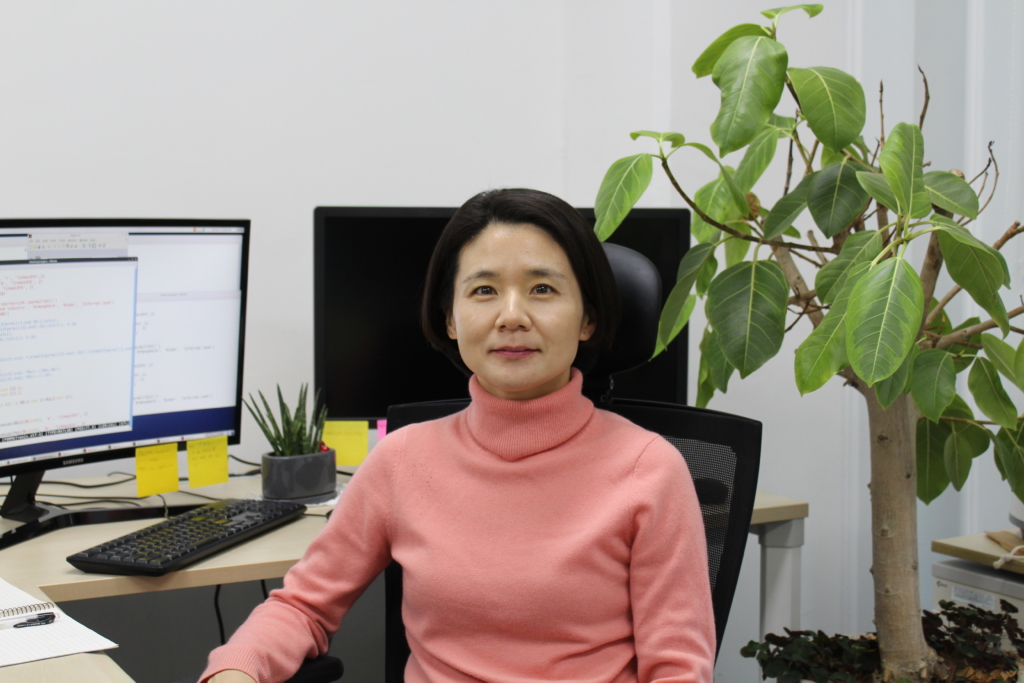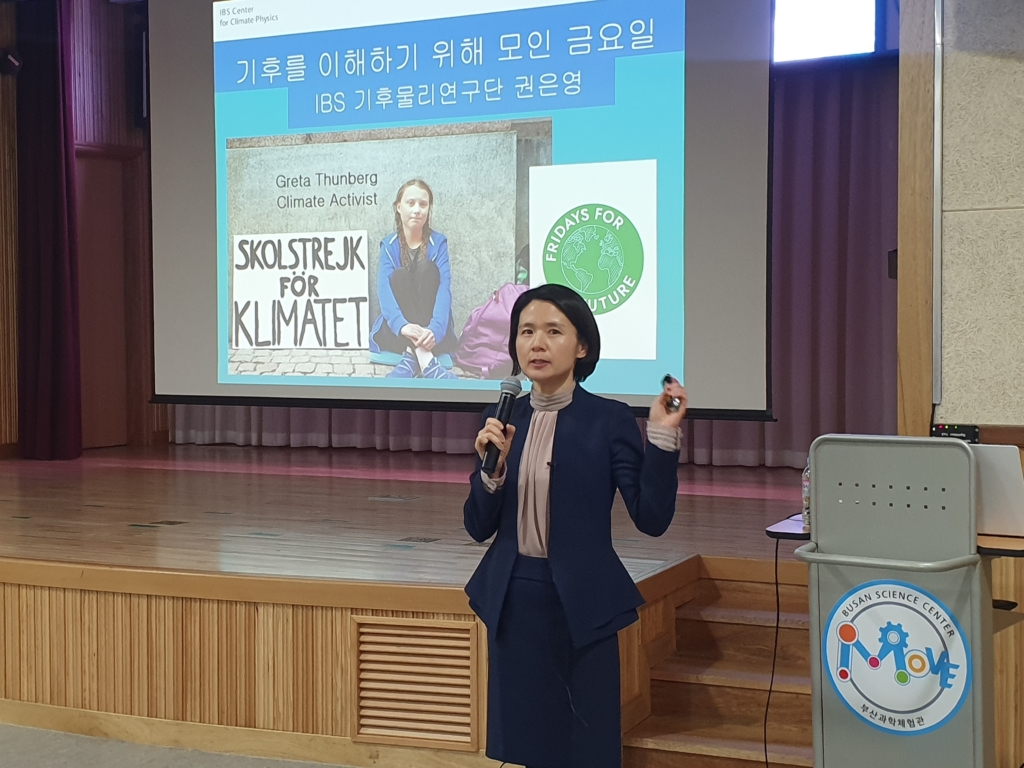Eun Young Kwon is an Associate Project Leader at the IBS Center for Climate Physics (ICCP). After graduation in the Department of Earth Science Education from Seoul National University, she got her M.S. and Ph.D. in Earth System Science from the University of California, Irvine, USA. In 2008, she moved to Princeton University to work as a postdoctoral Research Associate and Associate Research Scholar in the Atmospheric and Oceanic Sciences Program. Also, she worked at the University of California, Los Angeles, as a Postdoctoral Research Scholar in the Department of Atmospheric and Oceanic Sciences from 2011 to 2013. After then she moved to the Research Institute of Oceanography in Seoul National University, Korea, and worked as an Assistant Research Professor until 2017. Finally, she joined in ICCP in 2017 and has been working on ocean biogeochemistry modelling, with a focus on ocean physical and biogeochemical interactions.

Q. What is your main research subject?
I work on global ocean biogeochemical modeling. As we are burning fossil fuels for industrialization, more and more carbon accumulates in the atmosphere, causing global warming. Part of the anthropogenic carbon has been absorbed by the ocean, causing ocean acidification. In order to better predict future climate change and future ocean and marine ecosystems, we need to betterunderstand the past and present cycling of nutrients and carbon. Because the global ocean is very big and the biogeochemical cycling is very complex, it is a great challenge to study ocean physical and biogeochemical dynamics. In order to tackle the challenge, I build a numerical model to represent the complex system, and combine the model with observations to study ocean circulations and carbon cycles.
Q. When in your career did you feel most confident and proud of yourself?
I feel confident when my hard work is finally paid off. This includes publication of papers, conference presentations, and finding a good job that fits me well. Working at ICCP is one of the achievements from my research career and I am proud of myself being part of the ICCP. But, this kind of big confidence comes very rarely, as achieving something in research is really challenging. In fact, there are many outstanding scientists out there who have done lots of great work already. Adding something novel to the previous work takes creativity, constructive collaboration, and hard work. This does not come quickly. Rather, this is a slow process. I feel also confident when I make tiny, yet steady, progresses in my everyday research. This internal confidence is not visible from outside, yet this confidence provides momentum and joy in my everyday research activities.
Q. What do you think of the most important qualification that scientists should have?
Scientists should really love what they are doing. When you love something, you always think about it even while walking, sleeping, and eating. When you love something, you will never let it go no matter what happens to you or to something. When you love something, you will do whatever you can do to help it. Research should be the “something” to scientists. This is an important qualification, as doing science can be sometimes very difficult. Like our lives, we confront many obstacles and hardships. We may lose a year-long data due to instruments failure or computer crash, etc. But we keep going anyway because we simply love doing the work.
Q. You have experiences on participating in science outreach programs organized by ICCP. Do you agree that scientists should become more involved in community outreach to communicate their scientific knowledge to the general public? If so, could you share more about your thoughts and experiences?
I agree that scientists should become involved in community outreach because it helps not only the community but also scientists themselves. As a scientist, we are responsible for sharing our research experience and knowledge with the public because our research is in fact paid by tax payers. But, a more important reason I think is that our passions and skills as scientists are all gifted after all. As recipients of the gracious gifts, we are simply responsible for returning back. I also think that we can benefit from outreach activities. When we do our own research, we easily become narrow-minded because doing research requires going in-depth in a specific research topic. When I prepared materials for public outreach, for example, I was forced to think more broadly and explain science more easily. This in turn made me think more clearly about my specific research topics.

Q. What is the best science-related advice you ever received?
I don’t remember any advice in words. But, the way that my mentors have devoted their lives for research and education, and the way that my mentors have helped me do my research have been great real-time advice to me. I am lucky to have great mentors and colleagues who have nourished me as a scientist.
Q. What questions are you trying to answer these days? Also, what is your future research plan?
These days, I am trying to quantify the carbon fluxes from land to ocean. It has been one of the most difficult research questions, because direct observations are impossible for the global ocean. But, I have found that we can quantify the global terrestrial carbon fluxes using observed carbon isotopes and a numerical model that I have been developing. The results gave me a value that is larger than the riverine carbon fluxes by a factor of two. This means that the role of groundwater or direct export of carbon from coastal ecosystems is as important as rivers. This has been overlooked so far in the carbon cycle research community. So, my work is novel and important. For my future research, I would like to explore the carbon cycle changes in changing climates. This would involve development of a more sophisticated carbon cycle model and initiation of new collaborations with those who have long-term data under changing climates.